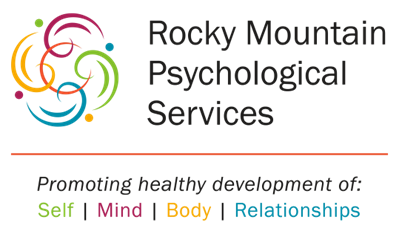DO CHILDREN OUTGROW ADHD AS ADULTS?
Current research shows that over sixty percent of adults maintain some of their core Attention-Deficit Hyperactivity Disorder (ADHD) symptoms beyond adolescence ([CADDAC], 2017).
Some adults with ADHD may have been diagnosed with ADHD in childhood and some may have received treatment, however many adults are unaware that their difficulties are caused by ADHD until diagnosed.
Symptoms of ADHD include difficulty with regulating attention (being unable to focus especially for less interesting tasks, difficulty switching focus, difficulty maintaining consistent focus, or intensely focusing on preferred tasks and possibly having difficulty with transitioning away from preferred tasks). Adults may also demonstrate hyperactivity and impulsivity, although these tend to look different for adults than for children (see below). There are three subtypes of ADHD that are determined based on the type of symptoms displayed. There is the primarily inattentive type (formerly known as ADD), the combined type (all three types of symptoms including difficulties with regulating attention, hyperactivity and impulsivity), and the primarily hyperactive type (which is quite uncommon). Many of the symptoms of the primarily inattentive subtype of ADHD may not be apparent to the outside world, which can make this subtype more difficult to identify.
Some ADHD symptoms, such as outward hyperactivity, may decrease over the course of the lifespan; many adults report that they were more physically hyperactive as children but that they now experience more mental busyness or a consistent feeling of internal restlessness. Adults often comment that over the years they have acquired strategies that help them to channel some of their restlessness into more appropriate outlets such as daily physical activity/sports, making sure they have something to fidget with during meetings, pacing while talking on the telephone, or finding employment that allows them to move or have a fast-paced environment. Impulsivity may decrease in adulthood or at least change in its presentation. Yet, many adults with ADHD find their verbal impulsivity, impulsive reactions, emotional reactivity, and impulsive spending habits can get them into a great deal of trouble. Executive Functioning impairments such as difficulty with working memory (holding information “online” in memory and working with it), organization, time management, planning, and prioritizing, as well as social gaffs are also common in adults with ADHD. Symptoms that adults with ADHD may experience:
(Note: Everyone has some of these symptoms occasionally, but those with adult ADHD tend to have more of these symptoms more often and these symptoms impact their lives more than those who do not have ADHD.)
Indicators of Challenges with Attention Regulation
- Struggling to pay maintain attention to tasks such as reading, doing paperwork, or other tasks that the person finds boring
- Being easily distracted by surroundings (e.g., difficulty staying focused in a noisy office, at the mall, or in a restaurant)
- Unable to pay close attention to details or making careless mistakes
- Difficulty prioritizing what to focus on based on the level of importance rather than interest
- Forgetting to complete tasks even if they are frequent activities
- Hyper-focusing on a preferred task and struggling to switch or re-focus attention on more important things (especially when involved in activities that are very stimulating and exciting)
- Frequently losing necessary things
- Struggling to listen to others or tuning out when other speak
Indicators of Challenges with Hyperactivity
- Fidgeting, pacing, finger drumming, chewing on pens/pencils, hair twirling, leg shaking etc.
- A feeling of internal restlessness
- Feeling that your mind is busy or racing and has multiple things going on at one time
- Unable to relax
- Talking too much
- Seeking excitement and stimulation (this can look like seeking high-risk activities, video-games, creating or getting involved in conflict)
- Trying to do too many things at once
Indicators of Challenges with Impulsivity
- Feeling bored easily
- Impulsively saying things or talking at inappropriate times
- Impulsive spending
- Interrupting or blurting out things
- Making impulsive decisions
- Speaking without thinking – blurting out things that are hurtful or rude
- Making decisions without considering the consequences, being reckless
Indicators of Challenges with Executive Functioning
- Difficulty prioritizing tasks
- Disorganization – messy home, office desk and car
- Procrastination
- Trouble starting and finishing projects
- Difficulty with time management – often over or underestimate time required
- Difficulty with planning
- Unable to consistently use hindsight and forethought when making decisions
- Feelings of under achievement
- Starting numerous projects but not completing them
- Delegation of organization duties to partners
Indicators of Challenges with Regulating Emotions
- Reacting emotionally to a greater degree than others
- Emotional outbursts
- Impatience
- Irritable
- Difficulty staying motivated
- Hypersensitive to criticism
- Low tolerance for frustration
- Moods swings
- Temper outbursts
- Anger may fade quickly or remain longer than normal
Other Possible Red Flags
- Difficulty with relationships
- Difficulty with social interaction
- Frequent job changes and job loss
- Less job satisfaction
- Less years of schooling, and difficulty in leaning environments
- More school discipline issues
- Holding more than one job
- Choosing jobs that are more active and less detail orientated
- Financial difficulties – difficulty paying bills on time and managing money
- Reduces work performance – missed deadlines, appointments and meetings
- Frequently late for appointments and social engagements
- Substance abuse issues including alcohol, coffee, cigarettes, marijuana
- More frequent driving accidents and speeding incidents
- More frequent physical accidents
- More rule breaking and interaction with the justice system
- Problems with self esteem
- Difficulty coping with stress
- Persistent mild depression
- Worrying when attention is not focused
- Difficulties with consistent thoughtful parenting
- Unable to recognize own behaviour and impact on others
If you or someone you know may be impacted by symptoms of adult ADHD, contact RMPS at 403-245-5981 to book an intake appointment. At that appointment, a clinician will work with you to determine the next best steps forward to help you with reducing problem areas and fulfilling your true potential.




